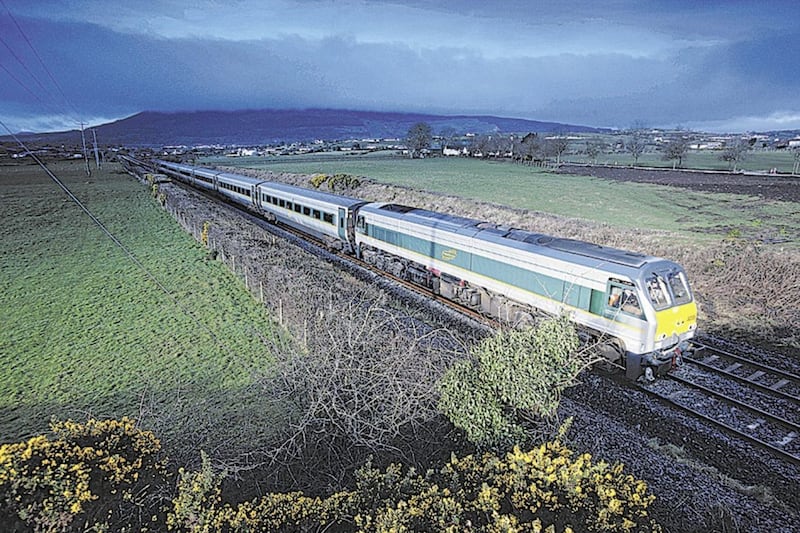A 35 minute drive south of the city of Chicago can be found the town of Chicago Heights. The town was once heavily Italian due to the waves of immigration early in the 20th century bringing families of economic migrants (to use modern parlance), including my own great grandparents.
Many settled in the East side or the Hill area, close to the steel mills and factories. It was a town on the rise during the first half of the 20th century, expanding significantly as new industries set up. By mid-century half the residents were of Italian background.
Alas, that was then.
Today, Chicago Heights has a rate of poverty double that for the US and its population is shrinking. The factories have gone. Most of the whites - Italians included - left long ago. The Hill is now predominantly Mexican and the East side overwhelmingly Black. My mother and her family were amongst those of Italian descent who left in the 1960s, never to return.
When I read the comments of DUP councillor, Tracy Kelly, about the violence in Sandy Row last week, I immediately thought of Chicago Heights and communities which experienced a similar fate.
She said: “You only have to look around the place to see how many shops have closed down, how many plots of land are lying derelict - it’s just waste ground. People are just sort of looking and saying, ‘we’re being forgotten about and not listened to’.”
She claimed working class areas “take the brunt” of immigration and that there were “issues with schools and doctors and everything else that goes along with that.”
“When you have chunks of the community disappearing and you’ve private apartments getting built where houses used to be and shops used to be, and it’s not thriving the way it used to be, it’s dragging people down,” she added.
Taken at face value, her words would strike a chord with many people across western society. It’s a story in part about urban decay, economic decline, demographic change, gentrification, governmental failures and the challenges faced by those who find it hard to accept that nothing stands still.
We have been told repeatedly that housing is a key factor fuelling the violence and protests in Belfast. Loyalists have for many years targeted the homes of ethnic minority families and threatened others who might consider moving into what they deem to be ‘their’ areas. The attack on an estate agent in Woodvale last week signalled an escalation in that campaign.
Yet the riots and racist attacks upon persons and property in Belfast of late are not primarily a consequence of pressures associated with housing. How do we know that?
It’s simple.
The objective data used by government departments consistently confirms that the areas with greatest housing need - and therefore associated pressures - are in fact overwhelmingly in Catholic working class parts of Belfast.
Racism and prejudice are not the exclusive preserve of any one community. The same prejudicial comments and throwaway racist remarks will be heard amongst people self-describing as Irish as amongst those identifying as British.
The difference, however, is that within the nationalist and republican community, those expressing such beliefs have not, to date, been afforded the space to gain political traction and wider support. Political and community leaders are much better at both pro-actively and reactively challenging and closing it down. It’s called leadership.
That doesn’t mean the racism isn’t present, as was confirmed recently in both Ballykelly and on the Falls Road.
Part of the difficulty with the narrative being articulated by Tracy Kelly and others is that it doesn’t put sufficient weight upon the reality our universities could not survive without the fee-paying foreign students occupying apartments, and our health system would collapse in the absence of those from other lands who now call this place home, including those living in Sandy Row and working in nearby hospitals.
Conflating the socio-economic woes experienced by struggling working class families with immigration is dangerous, not least in an age when lies and misinformation spread on social media instantly travel around the world, amplified by powerful bad faith actors like Elon Musk, leaving the truth struggling to catch up.
Those looking for people culpable to the charge of letting down working class loyalist communities, allowing physical neglect and a sense of despair to develop and fester, should look no further than the collective political leadership of unionism.
Letting people down includes giving space and credence to those regurgitating racist and sectarian tropes which demonise others and perpetuate the lie that these people are to blame for the challenges faced daily by struggling families, creating conditions within which those harbouring a malevolent agenda take the next step.
Letting people down includes deferring to paramilitaries, consistently failing to speak and act in a manner to close them down and put them out of business, knowing that the paramilitary groups continuing to recruit and operate within working class protestant communities only exacerbate the decline, discourage investment and extinguish hopes.









